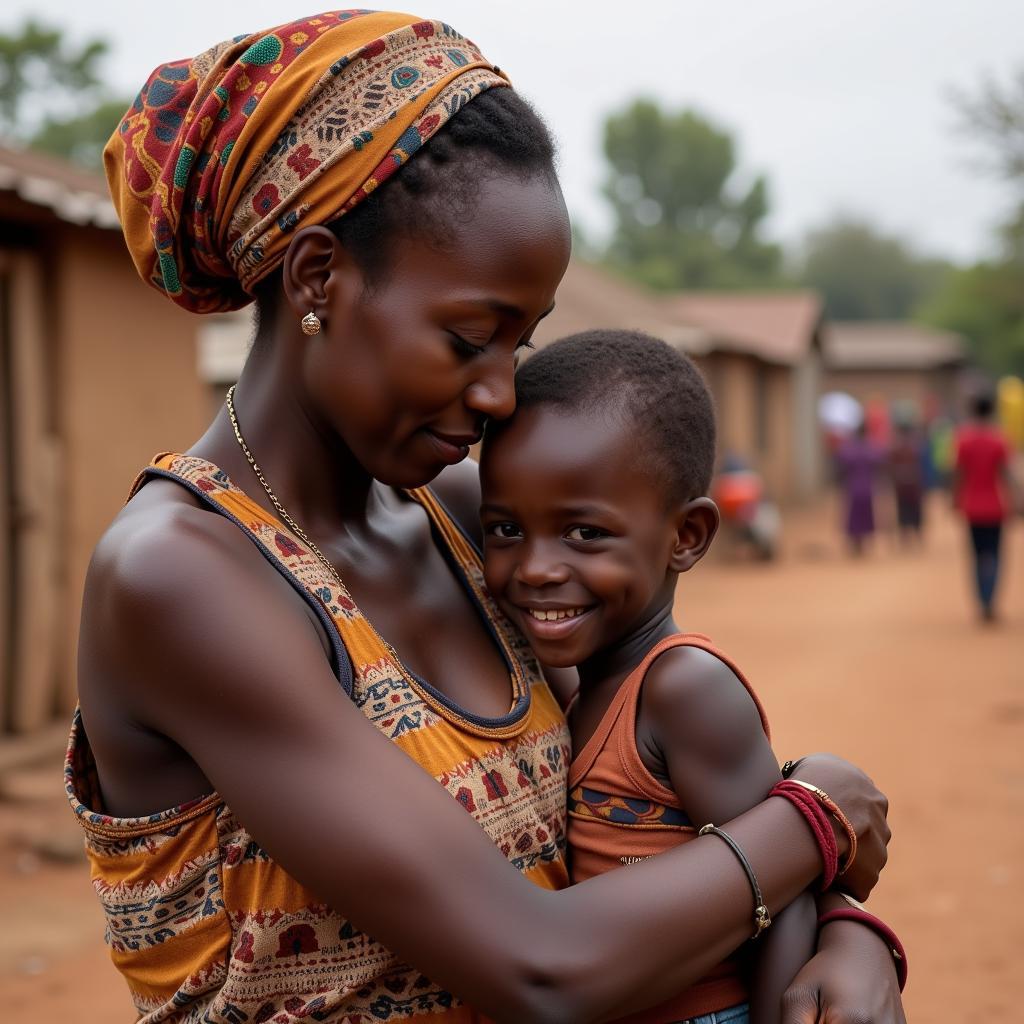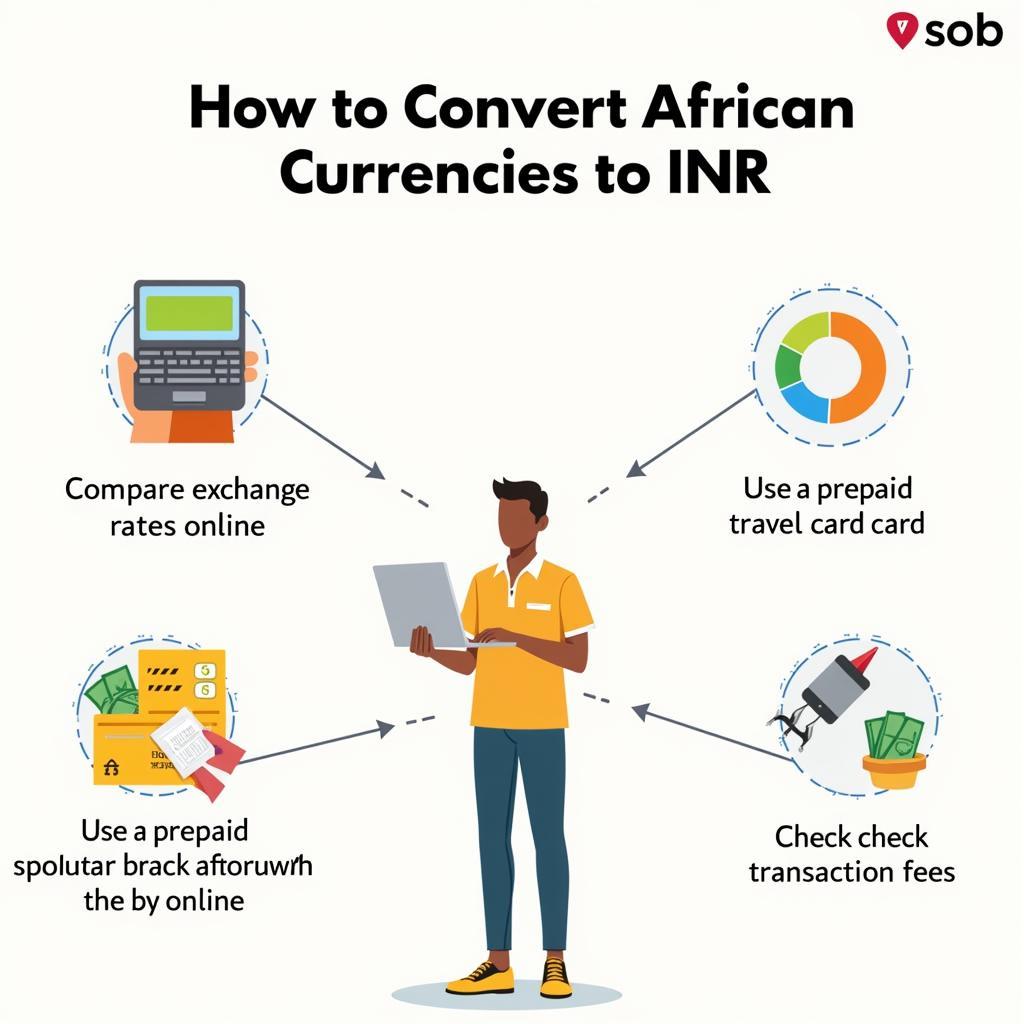African Goddess of Healing: Exploring Ancient Traditions
African goddesses of healing hold a significant place in the rich tapestry of African spirituality. They represent the power of nature, the wisdom of ancestors, and the deep connection between the physical and spiritual realms. These goddesses embody compassion, resilience, and the ability to restore balance and well-being. Exploring their stories and significance provides a fascinating glimpse into the diverse healing traditions across the African continent. Let’s delve into the world of these powerful deities and uncover their enduring legacy.
Who are the African Goddesses of Healing?
Across the vast and diverse continent of Africa, various cultures revere goddesses associated with healing. These deities often hold dominion over aspects of nature, such as water, plants, and childbirth, reflecting the intrinsic link between nature and well-being in many African traditions. Some prominent examples include Mami Wata, a powerful water spirit revered across West, Central, and Southern Africa, often associated with healing and fertility; Aset (Isis), an ancient Egyptian goddess associated with magic, healing, and protection; and Oshun, a Yoruba goddess of love, beauty, and healing, particularly associated with fresh water and fertility. These goddesses, among many others, highlight the importance of spiritual and physical well-being in African cultures. Understanding their stories unveils a world of ancient wisdom and traditional practices. Would you like to know more about African Goddess Isis? Check out this insightful article: African goddess isis.
The Role of Nature in African Healing Traditions
Many African healing practices are deeply rooted in nature. Herbal remedies, rituals involving water or earth, and ceremonies conducted under the open sky reflect the profound connection between humans and the natural world. This interconnectedness is often embodied by the goddesses of healing, who are seen as intermediaries between the human and spiritual realms. They offer solace, guidance, and the power to overcome illness and adversity.
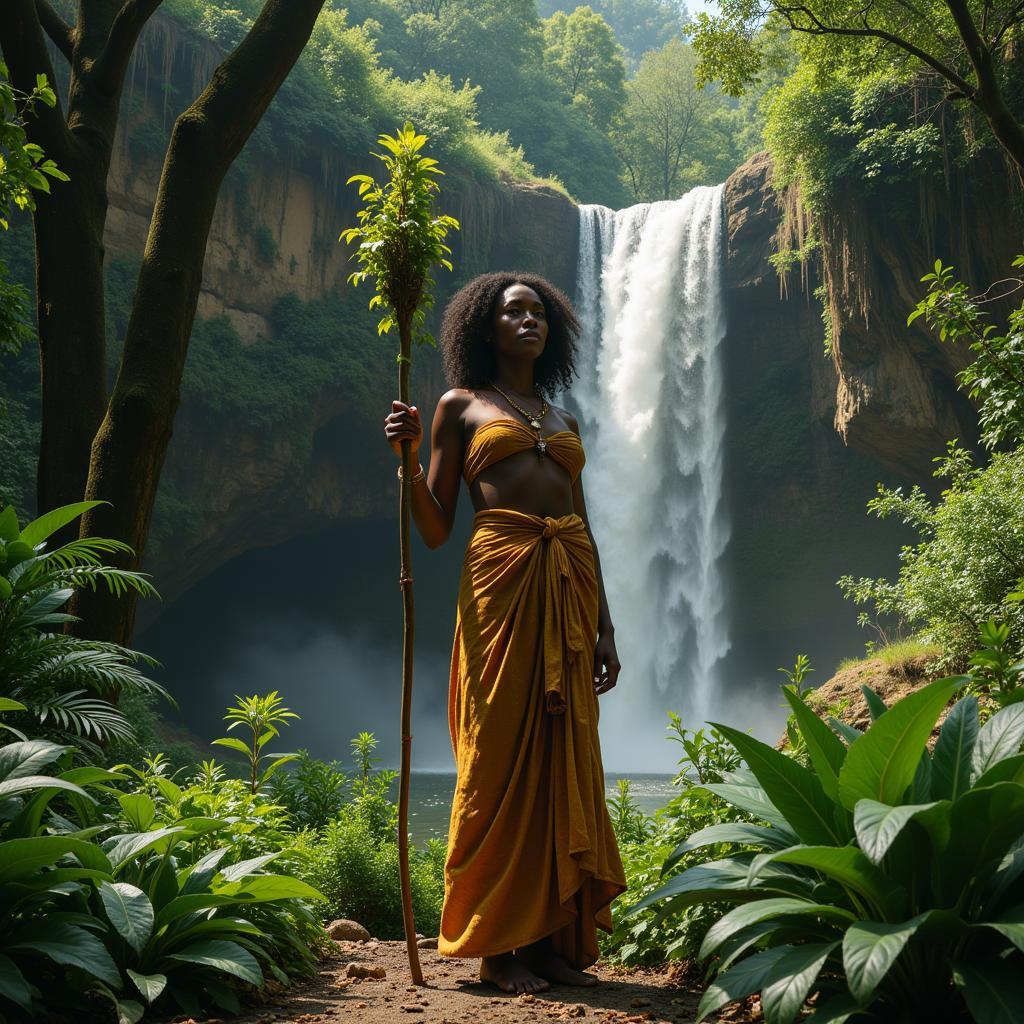 African Goddesses of Healing and Nature
African Goddesses of Healing and Nature
Rituals and Practices Associated with Healing Goddesses
Rituals and ceremonies dedicated to these goddesses vary widely across different cultures and regions. Offerings, prayers, music, and dance are often integral parts of these practices, creating a powerful communal experience that fosters healing and connection. These rituals not only address physical ailments but also seek to restore balance and harmony within the individual and the community.
How are African Goddesses of Healing Relevant Today?
Though rooted in ancient traditions, the relevance of these goddesses extends to the present day. Their stories offer valuable insights into the history of medicine, the power of belief, and the importance of community in healing. They remind us of the interconnectedness of mind, body, and spirit, and offer a holistic approach to well-being that transcends purely physical remedies. For those interested in exploring traditional African practices further, understanding the significance of African drums names can enrich your appreciation of the cultural context.
The Power of Belief and Spirituality in Healing
The reverence for healing goddesses underscores the profound impact of belief and spirituality on well-being. Faith in a higher power, combined with traditional healing practices, can provide comfort, hope, and a sense of empowerment in the face of illness. This spiritual dimension of healing is often overlooked in modern medicine but remains a crucial aspect of many African traditions.
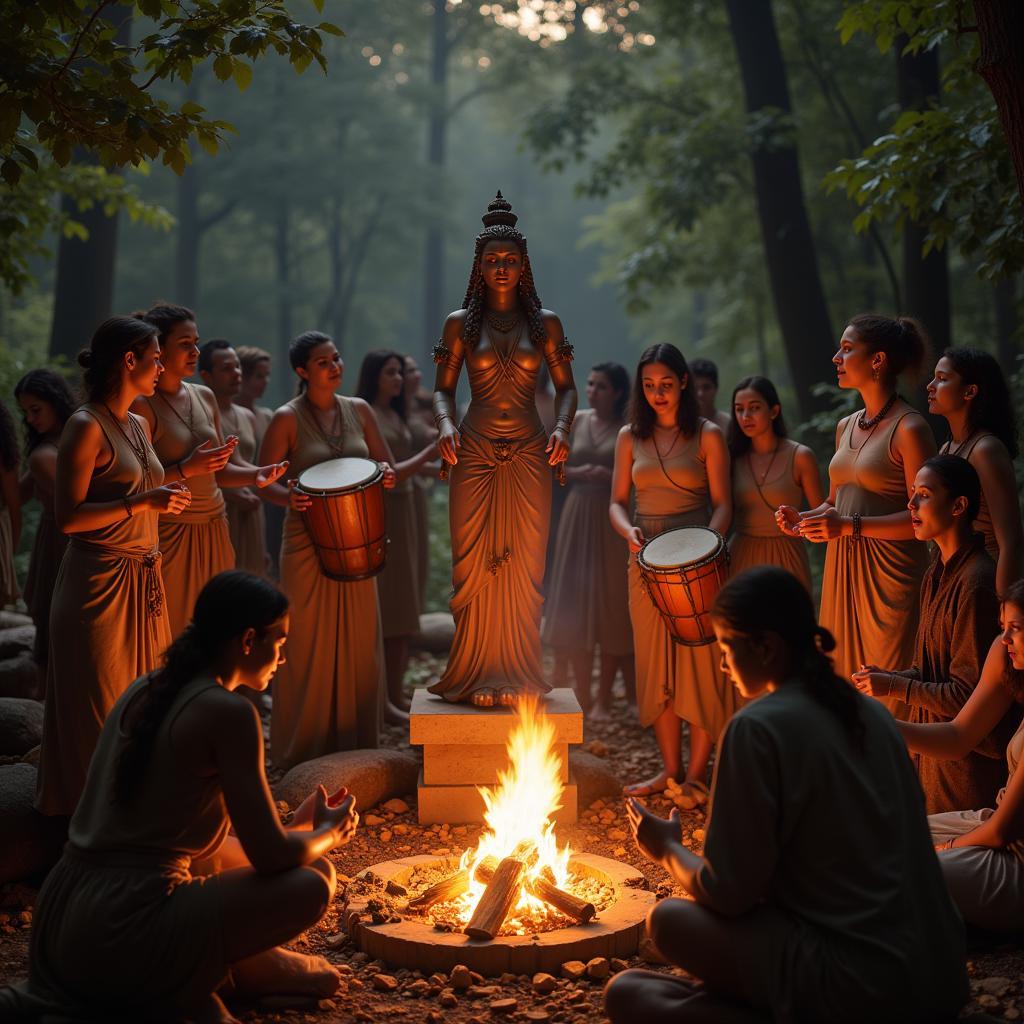 African Healing Rituals and Goddesses
African Healing Rituals and Goddesses
“The connection to ancestral wisdom and the power of belief are integral to understanding the profound impact of African goddesses of healing,” says Dr. Abena Kwesi, a renowned anthropologist specializing in African spiritual traditions.
Learning from Ancient Wisdom for Modern Well-being
The stories and practices associated with African goddesses of healing offer valuable lessons for contemporary society. Their emphasis on holistic well-being, the power of nature, and the importance of community provide a framework for cultivating a more balanced and fulfilling life. By exploring these traditions, we can gain a deeper understanding of the interconnectedness of all things and the importance of nurturing our physical, emotional, and spiritual health.
Conclusion: Embracing the Legacy of African Healing Goddesses
African goddesses of healing offer a fascinating window into the rich cultural heritage and spiritual traditions of the continent. They represent the enduring power of belief, the wisdom of ancient practices, and the deep connection between humans and the natural world. By exploring their stories and legacies, we can gain a deeper appreciation for the diversity and depth of African healing traditions and their ongoing relevance in the quest for holistic well-being. Remember to delve deeper into African spirituality and discover the intriguing world of African godess com.
FAQ
- Who is Mami Wata?
- What is the significance of Oshun in Yoruba tradition?
- How are African healing practices connected to nature?
- What are some common rituals associated with healing goddesses?
- How can we learn from ancient African wisdom for modern well-being?
- What is the relevance of African goddesses of healing today?
- Where can I find more information about African spiritual traditions?
“By understanding the deep symbolism embedded within these traditions, we can gain valuable insights into the human experience and the enduring quest for healing and wholeness,” adds Dr. Kwesi.
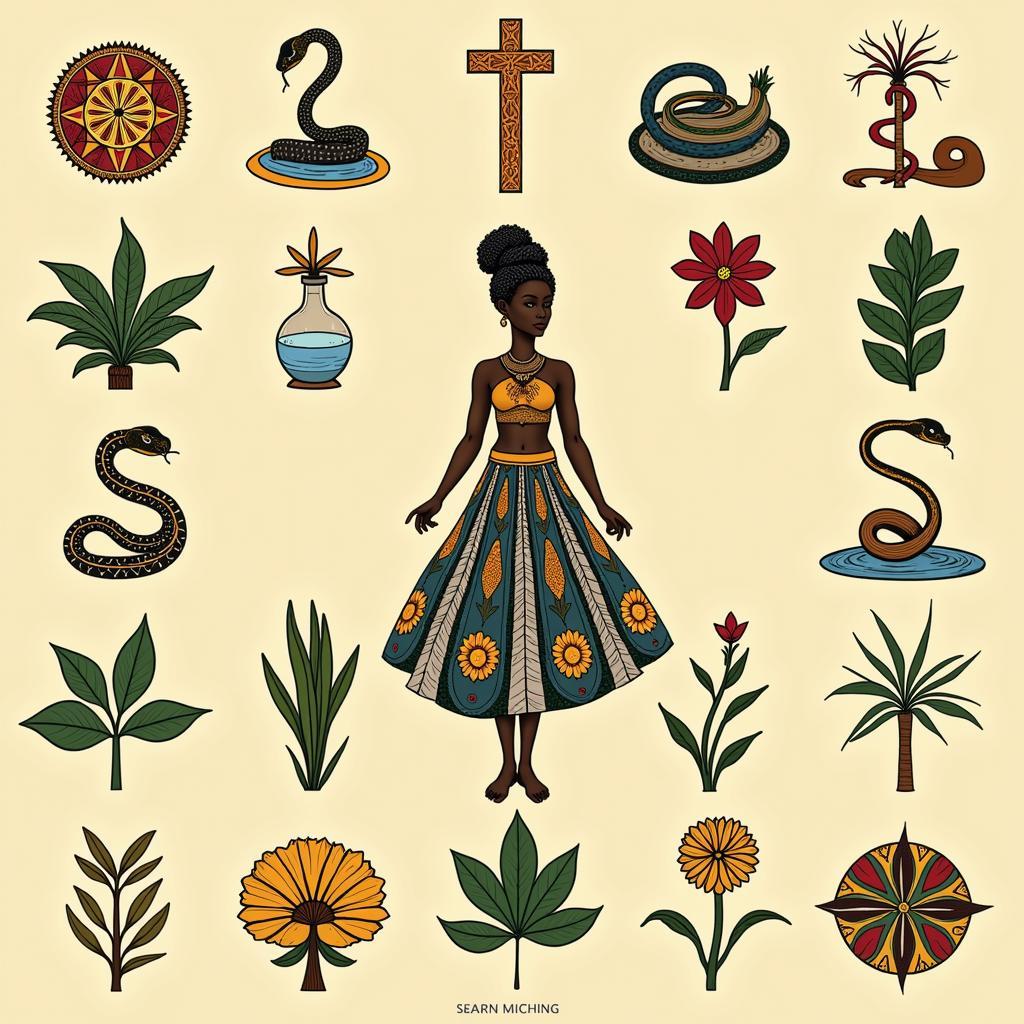 African Goddess Healing Symbols
African Goddess Healing Symbols
Other Questions About African Culture You Might Ask
- What are some examples of African back tattoos? Check out African back tattoos for inspiration.
- Are African astrology predictions accurate? Find out more about African astrology accurate predictions.
If you need further assistance, please contact us at Phone: +255768904061, Email: kaka.mag@gmail.com or visit our address: Mbarali DC Mawindi, Kangaga, Tanzania. We have a 24/7 customer service team.


